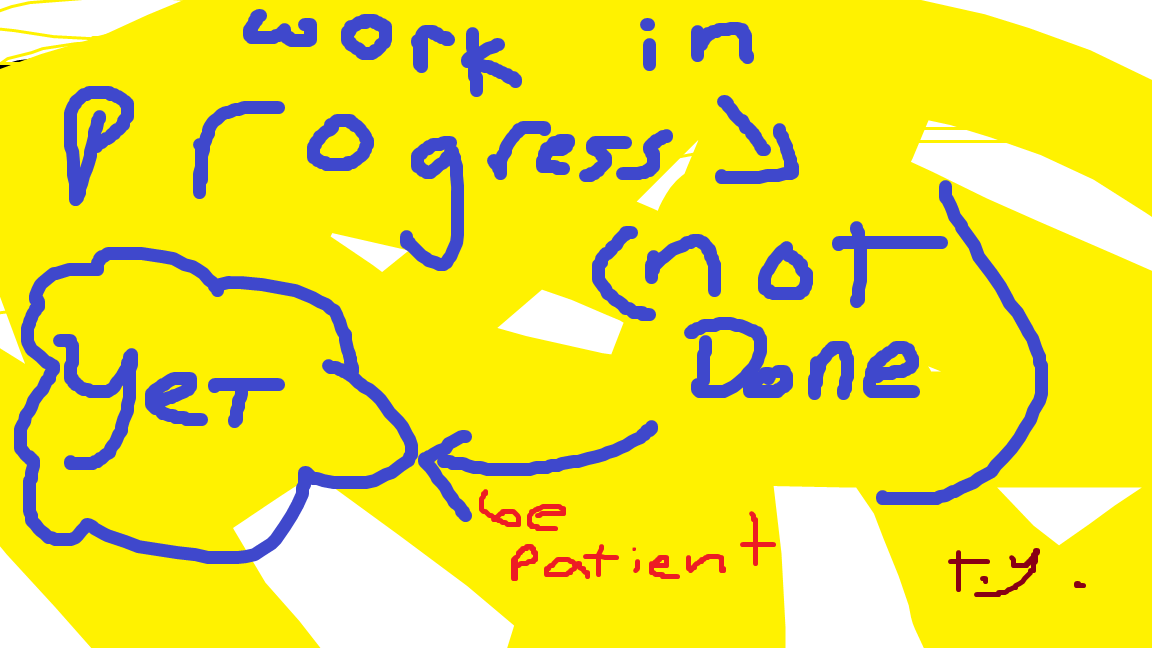
Sexuality

Table of Contents
- Introduction
- General Information
- Romantic Attraction
- Sexualities & Such
- Abrosexual
- Achillean/Man-Loving-Man/MLM
- Allosexual/Allo
- Ambiamorous
- Androsexual
- Aromantic/Aro
- Asexual/Ace
- Biromantic/Bi
- Bisexual/Bi
- Demiromantic
- Demisexual
- Diamoric
- Enbian
- Greysexual
- Gynosexual
- Heterosexual
- Homosexual
- Lesbian
- Monosexual
- Multisexual
- Neptunic
- Omnisexual
- Panromantic
- Pansexual
- Polyamorous
- Polysexual
- Queer
- Sapphic/Woman-Loving-Woman/WLW
- Saturnic
- Sexual Identity
- Skoliosexual
- Toric
- Trixic
- Uranic
- Vincian
- Additional Questions
- External Links

Introduction
Gender and sexuality are two different concepts that both have a lot to do with the human condition. Gender and sexuality are similar in the sense that anyone who has one that is a deviation from what is considered "the norm" (aka cisgender and heterosexual) is often seen as "abnormal." The fight for equality encompasses that of both uncommon genders and sexualities. Whether you call it the LGBTQIA+ community, the queer community, or even QUILTBAG, those who are not cisgender and heterosexual are lumped together due to shared experiences.
This page is intended to provide information regarding sexuality, though this website overall has a focus on gender rather than sexuality.
If you are looking to find out what your sexuality is, I cannot tell you. Only you can tell yourself what your sexuality is. Personally, I find that the best and easiest way to figure out your sexuality is to first figure out who you are; then figure out who you are attracted to; then find a label from there.

General Information
Sexuality is somewhat of a broad term by itself, but very basically, it refers when a human is attracted to another human; either emotionally, romantically, or physically.
Most humans would describe their sexuality as "straight" or "heterosexual" meaning women who find emotional connection with men; men who are sexually attracted to women, and so on. Of course, just because most humans are doing something in a particular way does not mean that all humans are doing that thing in the same way (the thing in question, being attracted to other humans).
Sexual attraction (or lack thereof) is such a vast experience due to the vast existence of humanity. Human culture is complex and vast. The human experience of gender is complex and vast. There are so many infinite ways in which a human can find attraction, and affection with another human. There are so many different ways a human can present themself and their love.
Some of the most common sexualities (after, of course, heterosexuality) would be homosexual, bisexual, and asexual (defined below). Sexual attraction (or lack thereof) is an experience that most humans can relate to in some way. Some humans find that labeling their experiences helps find a sense of identity and community. There are a lot of terms that people use to describe their attraction to others (more than I could possibly hope to list here).
Sexuality is fluid. Sexual preference and idenitfication can change over time.
Some transgender people will anecdotally claim that going on testosterone or estrogen changed their sexuality.
Personally, I believe that the truth is that it is easier to figure out and properly identify your attraction to others after you are more comfortable in your own body.
In the end, all that matters is that everyone figure out who they themselves are, who they want to be around, and what makes everyone comfortable.

Romantic Attraction
Romantic attraction refers to experiencing, well, romantic attraction as opposed to sexual attraction. For most people, their romantic orientation matches up with their sexual orientation. For others, it doesn't, and that's ok.

Sexualities & Such

Abrosexual

Achillean

Allosexual/Allo

Ambiamorous

Androsexual

Aromantic/Aro

Asexual

Biromantic/Bi

Bisexual/Bi

Demiromantic

Demisexual

Diamoric

Enbian

Greysexual

Gynosexual

Heterosexual/Straight

Homosexual/Gay

Lesbian

Monosexual

Multisexual

Neptunic

Omnisexual

Panromantic

Pansexual

Polyamorous

Polysexual

Queer

Sapphic/Woman-Loving-Woman/WLW

Saturnic

Sexual Identity

Sexuality

Sexual Orientation

Skoliosexual

Toric

Trixic

Uranic

Vincian

Additional Questions
I am a straight man attracted to a trans woman. Am I still straight?
Yes.

I am a straight man attracted to a trans man. Am I still straight?
No.

I am a straight woman attracted to a trans woman. Am I still straight?
No.

I am a straight woman attracted to a trans man. Am I still straight?
Yes.

I am a transgender woman in a relationship with a cisgender woman who does not want me to transition or wants to limit my transition. Should I break up with her?
Yes.

I am a transgender man in a relationship with a cisgender man who does not want me to transition or wants to limit my transition. Should I break up with him?
Yes.

I am a transgender or nonbinary person in a relationship with a cisgender person who does not want me to transition or wants to limit my transition. Should I break up with them?
Yes.

I am a transgender or nonbinary person in a relationship with a cisgender person, and I am afraid that my cisgender partner will not accept me if I transition. Should I transition?
Yes, and you should break up with the cisgender partner if they do not accept and respect your transition.

I am a transgender or nonbinary person in a relationship with another transgender person whose sexual orientation contradicts with the nature of our relationship in a way that invalidates my gender identity. Should I break up with my partner?
Yes.

I am a transgender or nonbinary person in a relationship with someone who will break up with me if I transition. Should I transition?
Yes, your personal happiness and well-being should not be reliant on the validation on another person, but rather on happiness in your own self.

External Links

Sexuality Links & Such
- Fandom - LGBTQIA - wiki (https://lgbtqia.fandom.com/wiki/LGBTQIA%2B_Wiki)
- Healthline: Jennifer Litner, PhD, LMFT, CST & Mere Abrams, LCSW: 02/17/2023: 47 Terms That Describe Sexual Attraction, Behavior, and Orientation (https://www.healthline.com/health/different-types-of-sexuality)
- LGBTQIA wiki (https://new.lgbtqia.wiki/wiki/Main_Page)
- Medical News Today: Francis Kuehnle, MSN, RN-BC & Veronica Zambon: 03/26/2025: Types of Sexuality (https://www.medicalnewstoday.com/articles/types-of-sexuality)
- ProudZebra: 01/06/2021: Sexual Orientations - Trixic/Toric - Enbies with Specific Gender Attractions! (https://proudzebra.com/blogs/sexual-orientations/about-trixic-toric)
- Psych Central: Francis Kuehnle, MSN, RN-BC & Zuri White-Gibson & Jamie Smith: 08/23/2022: Glossary of LGBTQIA+ Terms: Why Language Matters (https://psychcentral.com/health/list-of-lgbtqia-terms)
- Rainbow & Co: 07/22/2021: An Ever Growing List of Sexualities & their Definitions (https://rainbowandco.uk/blogs/what-were-saying/sexuality-definitions)
- Trans Language Primer - Allosexual (https://translanguageprimer.com/allosexual/)
- Trans Language Primer - Multiple Orientation Labelling (https://translanguageprimer.com/multiple-orientation-labelling/)
- Trans Language Primer - Sexuality / Sexual Orientation (https://translanguageprimer.com/sexuality/)
- Wikipedia - Allosexuality (https://en.wikipedia.org/wiki/Allosexuality)
- Wikipedia - Human Sexuality (https://en.wikipedia.org/wiki/Human_sexuality)
- Wikipedia - Romantic Orientation (https://en.wikipedia.org/wiki/Romantic_orientation)
- Wikipedia - Sexual Identity (https://en.wikipedia.org/wiki/Sexual_identity)
- Wikipedia - Sexual Orientation (https://en.wikipedia.org/wiki/Sexual_orientation)
- Wikipedia - Split Attraction Model (https://en.wikipedia.org/wiki/Split_attraction_model)

Additional Resources
- 7 Cups: How do I know if I'm gay, lesbian, or bisexual? (https://www.7cups.com/qa/lgbtq-17/how-do-i-know-if-im-gay-lesbian-or-bisexual-406/)
- Conscious Euphoria (https://conscious-euphoria.com/)
- itch.io - 404luxio - tiny pixel pride flags (https://404luxio.itch.io/tiny-pixel-pride-flags) - the flags used for this page
- Its Pronounced Metrosexual: Sam Killermann: Comprehensive* List of LGBTQ+ Vocabulary Definitions (https://www.itspronouncedmetrosexual.com/2013/01/a-comprehensive-list-of-lgbtq-term-definitions/) - list of terms and their definitions
- Really and Ideally: Thoughts about the serious and the mundane: Emily: 11/20/2011: Musings on the Nature of Attraction (https://reallyideallyemily.blogspot.com/2011/11/musings-on-nature-of-attraction.html)
- Reddit - r/normalnudes (https://www.reddit.com/r/normalnudes/)
- Scarleteen - Sex & Sexuality (https://www.scarleteen.com/read/sex-sexuality)
- The Body Diversity Gallery (https://linktr.ee/thebodydiversitygallery)
- tumblr: the-inspired-lesbian: 02/25/2014: Figuring out your sexual orientation (https://www.tumblr.com/the-transgenda-agenda/788876091321466880/figuring-out-your-sexual-orientation)
- Trans Language Primer - LGBTQIA+ (https://translanguageprimer.com/lgbtqia/)
- Wayback Machine: Advocates for Youth: I Think I Might Be Gay, Now What Do I Do? (https://web.archive.org/web/20181031142152/https://www.advocatesforyouth.org/publications/publications-a-z/726-i-think-i-might-be-gay-now-what-do-i-do) - article about what it means to be gay, figuring out if you are gay, assurance that it is normal to be gay, some education about HIV/AIDS, self acceptance, and telling others
- Wayback Machine: I'm attracted to the same-sex (https://web.archive.org/web/20170624145959/https://au.reachout.com/im-attracted-to-the-same-sex) - Think you might be gay? Find out what being same-sex attracted means. Learn more about why some people are gay, and get the facts about whether it’s natural. Only you can know your own sexual preference, and if people harass you for being gay, or you’re struggling with your sexuality, you can do something about it.
- Wayback Machine: Tumblr: Anagnori: 02/22/2015: Oh, and while we’re talking about sex-repulsed people (https://web.archive.org/web/20150206234835/https://anagnori.tumblr.com/post/77525320414/oh-and-while-were-talking-about-sex-repulsed)
- Wayback Machine: Sexuality and U: Understanding Sexuality (https://web.archive.org/web/20161024154748/https://www.sexualityandu.ca/sexual-health/understanding-sexuality)
- YouTube Video: Ash Hardell: 11/24/2024: The ABC's of LGBT+

See also the pages for breasts, penis, and vulva.


